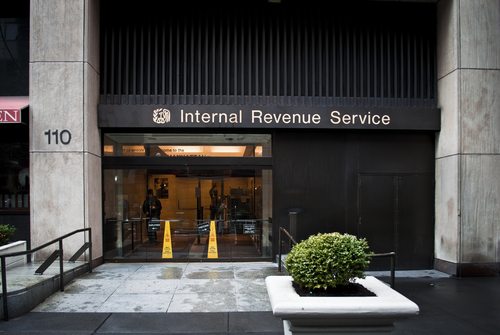
June 25, 2015; CNN Politics
Yesterday, NPQ published a newswire based on an editorial that speculated that it would be difficult to address the dark money issues in 501(c)(4) nonprofits this election season because of the targeting scandal of the IRS. This, of course, is not helped by the fact that the inquiry drags on and on.
Last week’s Treasury Inspector General’s update to the House Oversight and Government Reform Committee on Lois Lerner’s missing emails was unsatisfying to all parties. Early estimates of tens of thousands of possible emails being found that relate to the IRS scandal were subsequently reduced to 6,000 and ultimately to about 1,000. Meanwhile, the TIGTA’s office reported that as many as 24,000 emails may be permanently lost.
The IRS had promised for more than a year to respond fully to a subpoena and produce all Lerner emails. After a long delay, the IRS ultimately reported the emails to have been lost due to computer hardware failures. However, the TIGTA’s office later found more than 700 backup tapes (not produced by the IRS in response to the subpoena) that may have included the Lerner emails under subpoena. Almost all of the tapes had been erased and the data unrecoverable.
Sign up for our free newsletters
Subscribe to NPQ's newsletters to have our top stories delivered directly to your inbox.
By signing up, you agree to our privacy policy and terms of use, and to receive messages from NPQ and our partners.
The investigators’ interviews with IRS personnel discovered no willful intent to destroy evidence. The tapes were handled in accordance with IRS policy and procedures for the handling of confidential material, and the personnel involved in the destruction claimed no knowledge of the subpoenas and the potential relevance of the materials destroyed.
Democrats on the committee continue to point out that there is no evidence of political bias as a motivation for the IRS’s targeting and that there is no demonstrated link to the White House. They cite the more than 160,000 labor hours and $20 million spent by the IRS to comply with investigators’ demands as a distraction from customer service and other IRS priorities. Democrats and the Treasury investigators both complained about leaks from committee Republicans citing the early numbers of possible emails. Republicans continue to be enraged about the slow IRS response and apparent unwillingness to take the investigations seriously, despite credible evidence of IRS malfeasance that, by definition, targeted “Tea Party” and other conservative-sounding organizations in the wake of the Citizens United Supreme Court ruling in early 2010.
At the very least, the IRS’s procedures for responding to subpoenas for electronic evidence have been demonstrated to be seriously deficient. In addition, the IRS’s destruction of electronic records may violate the Federal Records Act, which mandates the archiving of all government communications under the ultimate supervision of the Archivist of the United States.
The IRS’s targeting of conservative-sounding tax-exempt organizations, first reported publicly in May 2013, prompted several simultaneous and ongoing investigations that have awaited production of subpoenaed emails to and from Lerner. Lerner was the Director of the Exempt Organizations (EO) Unit of the IRS from 2006 until being placed on unpaid administrative and ultimately retiring from the IRS in 2013. Lerner is believed to have been a key figure in the IRS scandal, based on the TIGTA’s May 2013 initial audit report and upon evidence subsequently produced.
To add more unfortunate fodder for the conspiracy theorists, there is now a link between the IRS scandal and the Congressional investigation surrounding the attack on the US Consulate in Benghazi, Libya, in 2012. Catherine Duval, the IRS attorney responsible for supervising the production of the Lerner emails, has been transferred to the State Department, where she now oversees the production of former Secretary of State Hillary Clinton’s emails to the House committee investigating Benghazi.—Michael Wyland













